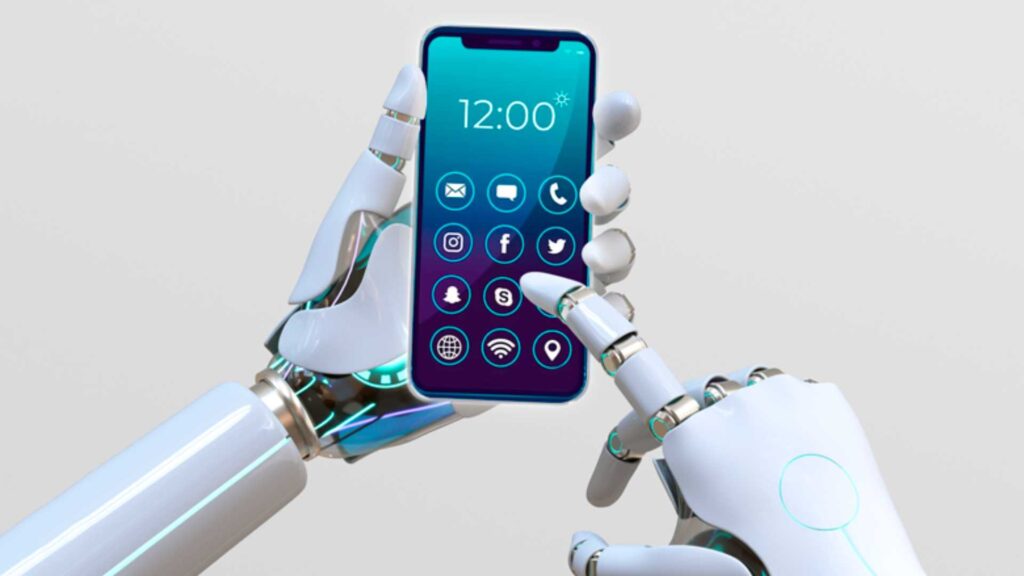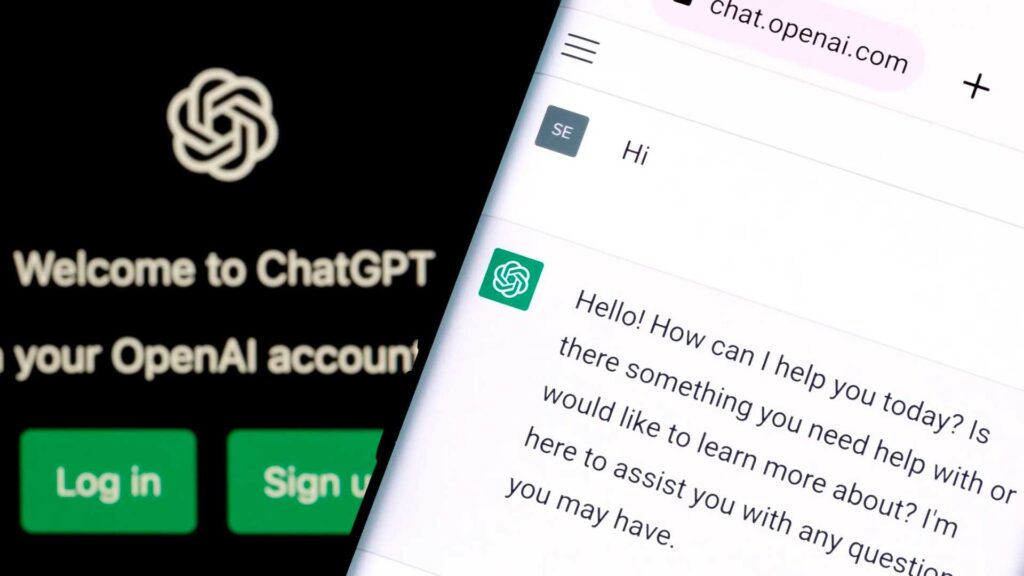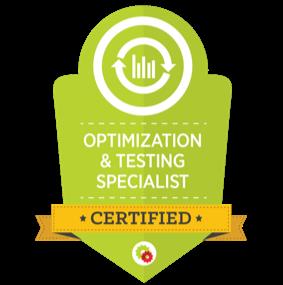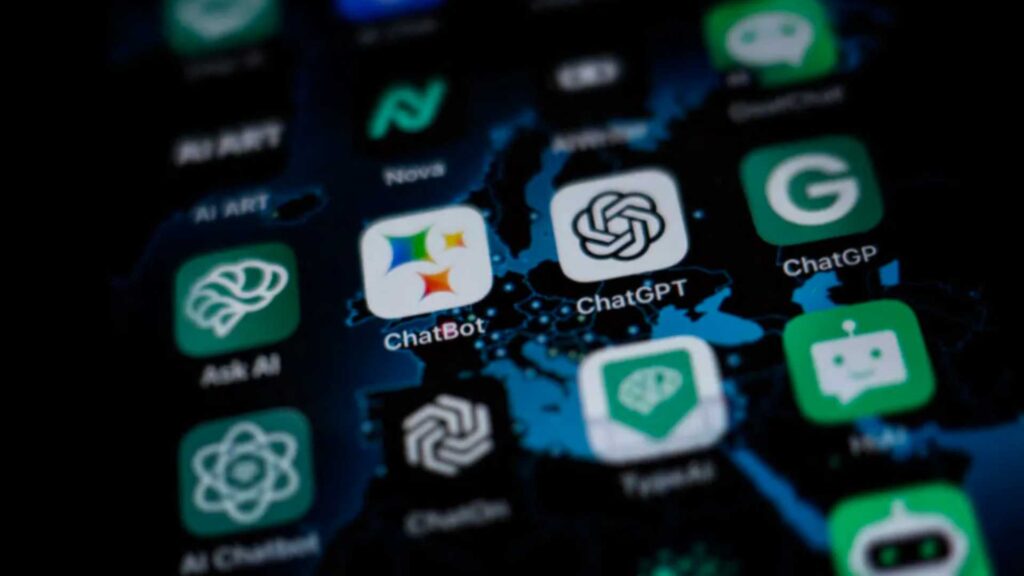
Have you ever wondered if the article you’re reading online was written by a human or an AI?
In today’s quickly evolving digital landscape, distinguishing between human-crafted and AI-generated content is becoming increasingly challenging.
As AI technology rapidly advances, the lines are blurring, leaving many to question: Can we really trust AI content detectors to tell the difference?
In this article, we’ll deep dive into the world of AI content detection, exploring its capabilities, limitations, and discuss Google’s view of AI content generation.
What Is AI Content Detection?
AI Content Detection refers to the process and tools used to identify whether a piece of writing was created by an AI program or a human.
These tools use specific algorithms and machine learning techniques to analyze the nuances and patterns in the writing that are typically associated with AI-generated content.
Why was AI Writing Detection Created?
AI content detectors were created to identify and differentiate between content generated by artificial intelligence and content created by humans, helping maintain authenticity and address concerns related to misinformation, plagiarism, and the ethical use of AI-generated content in journalism, academia, and literature.

There are several key reasons behind the creation of AI writing detectors:
Maintaining Authenticity: In a world where authenticity is highly valued, especially in journalism, academia, and literature, ensuring that content is genuinely human-produced is important for many people.
Combatting Misinformation: With the rise of AI tools, there’s a risk of their misuse in spreading misinformation. AI content detectors were created in an attempt to combat this.
Upholding Quality Standards: While AI has made significant strides in content generation, it still lacks some of the nuances, depth, and emotional connection that human writing offers.
Educational Integrity: In academic settings, AI detectors play a vital role in upholding the integrity of educational assessments by ensuring that students’ submissions are their own work and not generated by AI tools.
How Does AI Detection Work?
Perplexity and Burstiness
AI generation and detection tools often use concepts like ‘perplexity’ and ‘burstiness’ to identify AI-generated text.
Perplexity measures the deviation of a sentence from expected “next word” predictions. In simpler terms, it checks if the text follows predictable patterns typical of AI writing. When a text frequently employs predicted “next words,” it’s likely generated by an AI writing tool.

Burstiness refers to the variability in sentence length and complexity. AI-written texts tend to have less variability than human-written ones, often sticking to a more uniform structure.
Both these metrics help in differentiating between human and AI writing styles.
Classifiers and Embeddings
Classifiers are algorithms that categorize text into different groups.
In the case of AI detection, they classify text as either AI-generated or human-written. These classifiers are trained on large datasets of both human and AI-generated texts.
Embeddings are representations of text in a numerical format, allowing the AI to understand and process written content as data. By analyzing these embeddings, AI detection tools can spot patterns and nuances typical of AI-generated texts.
Temperature
Temperature is a term borrowed from statistical mechanics, but in the context of AI, it relates to the randomness in the text generation process.
Lower temperature results in more predictable and conservative text, while higher temperature leads to more varied and creative outputs. AI detection tools can analyze the temperature of a text, identifying whether it was likely written by an AI operating at a certain temperature setting.

This is particularly useful for distinguishing between texts generated by AI with different creativity levels, but its detection accuracy begins to degrade the higher the temperature.
AI Watermarks
A newer approach in AI detection is the use of AI watermarks. Some AI writing tools embed subtle, almost imperceptible patterns or signals in the text they generate.
These can be specific word choices, punctuation patterns, or sentence structures. AI detectors can look for these watermarks to identify if the content is AI-generated.
While this method is still evolving, it represents a direct way for AI systems to ‘mark’ their output, making detection easier.
The Accuracy of AI Writing Detection
Assessing the Reliability of AI Detectors
These detectors are designed to identify text generated by AI tools, such as ChatGPT, and are used by educators to check for plagiarism and by moderators to remove AI content.
However, they are still experimental and have been found to be somewhat unreliable.
OpenAI, the creator of ChatGPT, has stated that AI content detectors have not proven to reliably distinguish between AI-generated and human-generated content, and they have a tendency to misidentify human-written text as AI-generated.

Additionally, experiments with popular AI content detection tools have shown instances of false negatives and false positives, making these tools less than 100% trustworthy.
The detectors can easily fail if the AI output was prompted to be less predictable or was edited or paraphrased after being generated. Therefore, due to these limitations, AI content detectors are not considered a foolproof solution for detecting AI-generated content.
Limitations and Shortcomings of AI Content Detection Tools
No technology is without its limitations, and AI detectors are no exception.
Here are some key shortcomings:
- False positives/negatives: Sometimes, these tools can mistakenly flag human-written content as AI-generated and vice versa.
- Dependence on training data: The tools might struggle with texts that are significantly different from their training data.
- Adapting to evolving AI styles: As AI writing tools evolve, the detectors need to continuously update to keep pace or get left behind.
- Lack of understanding of intent and context: AI detectors can sometimes miss the subtleties of human intent or the context within which the content was created.
Real Examples of How AI Detection is Flawed
AI detectors, while increasingly interesting, are not infallible. Several instances highlight their limitations and the challenges in distinguishing between human and AI-written content accurately.
University of Maryland AI Detection Research Findings
University of Maryland researchers, Soheil Feizi and Furong Huang, have conducted research on the detectability of AI-generated content.
They found that “Current detectors of AI aren’t reliable in practical scenarios,” with significant limitations in their ability to distinguish between human-made and machine-generated text.
Feizi also discusses the two types of errors that impact the reliability of AI text detectors: type I, where human text is incorrectly identified as AI-generated, and type II, where AI-generated text is not detected at all.

You’ve Been Taught SEO ALL WRONG
Become a Certified Search Marketing Specialist and Start Boosting Your Sales by Attracting and Converting Your Ideal Leads Everywhere They Are.
He provides an example of a recent type I error where AI detection software incorrectly flagged the U.S. Constitution as AI-generated, illustrating the potential consequences of relying too heavily on flawed AI detectors.
As you increase the sensitivity of the instrument to catch more Al-generated text, you can’t avoid raising the number of false positives to what he considers an unacceptable level.
So far, he says, it’s impossible to get one without the other. And as the statistical distribution of words in AI-generated text edges closer to that of humans —that is, as it becomes more convincing —he says the detectors will only become less accurate.
He also found that paraphrasing baffles Al detectors, rendering their judgments “almost random.” “I don’t think the future is bright for these detectors,” Feizi says.
UC Davis Student Falsely Accused
A student at UC Davis, Louise Stivers, fell prey to the university’s efforts to identify and eliminate assignments and tests done by AI.
She had used Turnitin, an anti-plagiarism tool, for her assignments, but a new Turnitin detection tool flagged a portion of her work as AI-written, leading to an academic misconduct investigation.

Stivers had to go through a bureaucratic process to prove her innocence, which took more than two weeks and negatively affected her grades.
AI Detectors vs. Plagiarism Checkers
When considering the tools used in content verification, it’s essential to distinguish between AI detectors and plagiarism checkers as they serve different purposes.
AI Detectors: AI detectors are tools designed to identify whether a piece of content is generated by an AI or a human. They use various algorithms to analyze writing style, tone, and structure. These detectors often look for patterns that are typically associated with AI-generated text, such as uniformity in sentence structure, lack of personal anecdotes, or certain repetitive phrases.
Plagiarism Checkers: On the other hand, plagiarism checkers are primarily used to find instances where content has been copied or closely paraphrased from existing sources. These tools scan databases and the internet to compare the submitted text against already published materials, thus identifying potential plagiarism.
The key difference lies in their function: while AI detectors focus on the origin of the content (AI vs. human), plagiarism checkers are concerned with the originality and authenticity of the content against existing works.
Common Mistakes in AI-Generated Text
AI-generated text has improved significantly, but it can occasionally produce strange results.

Here are some common mistakes that can be a giveaway:
- Lack of Depth in Subject Matter: AI can struggle with deeply understanding nuanced or complex topics, leading to surface-level treatment of subjects.
- Repetition: AI sometimes gets stuck in loops, repeating the same ideas or phrases, which can make the content feel redundant.
- Inconsistencies in Narrative or Argument: AI can lose track of the overall narrative or argument, resulting in inconsistencies or contradictory statements.
- Generic Phrasing: AI tends to use more generic phrases and may lack the unique voice or style of a human writer.
- Difficulty with Contextual Nuances: AI can miss the mark on cultural, contextual, or idiomatic expressions, leading to awkward or incorrect usage.
AI Detection in SEO
Within the world of SEO, content quality has always been one of the major ranking factors.
With the advent of AI-generated content, there’s been much speculation and discussion about how this fits into Google’s framework for ranking and evaluating content.
Here, we’ll explore Google’s stance on AI content and what it means for SEOs.
Google’s Stance on AI Content
Google’s primary goal has always been to provide the best possible search experience for its users. This includes presenting relevant, valuable, and high-quality content in its search results.
Google’s policy on AI-generated content is fairly straightforward: it doesn’t need a special label to indicate it’s AI-generated. Instead, Google focuses on the quality and helpfulness of the content, no matter how it’s made.

Conversion Rate Optimization Expert
FACT: Businesses NEED Optimization Experts (…Who Actually Know What They’re Doing) All businesses need a way to optimize the traffic they’re already getting to generate more leads and more sales.
They advise creators to focus on producing original, high-quality, people-first content that demonstrates experience, expertise, authoritativeness, and trustworthiness (E-E-A-T).
Google has made it clear that AI-generated content is not against its guidelines and has the ability to deliver helpful information and enhance user experience, however, they obviously oppose the use of AI to generate deceptive, malicious, or inappropriate content.
Implications for SEO Strategy
Given Google’s position, the use of AI in content creation can be seen as a tool rather than a shortcut. The key is to ensure that the AI-generated content:
Addresses User Intent: The content should directly answer the queries and needs of the users.
Maintains High Quality: AI content should be well-researched, factually accurate, and free from errors.
Offers Unique Insights: Even though AI can generate content, adding unique perspectives or expert insights can set the content apart.
Broader Applications and Future Outlook
As we dive into the future of AI writing and content detection, it’s clear that we’re standing at the brink of a technological revolution.

AI isn’t just a fleeting trend; it’s rapidly becoming an integral part of the digital landscape. But as AI writing evolves, it’s unclear as to whether or not AI detection will be able to keep up.
The Future of AI Writing and Content Detection
The future of AI writing is trending towards more sophisticated, nuanced, and context-aware outputs.
As AI algorithms become more advanced, they are learning to mimic human writing styles with greater accuracy, making it challenging to distinguish between human and AI-generated content.
In response to these advancements, AI detection tools are also evolving. The focus is shifting towards more complex algorithms that can analyze writing styles, patterns, and inconsistencies that are typically subtle and difficult to catch.
However, as AI writing tools become more adept at mimicking human idiosyncrasies in writing, the task of detection becomes increasingly challenging.
[TAG10]The post AI Anxiety – Does AI Detection Really Work? appeared first on DigitalMarketer.
Frequently Asked Questions
What is your greatest motivation?
You're interested in my greatest motivation? Let me tell it. My best motivation in life is to help people feel better about themselves. To make them realize that they are amazing, because they are. That they are worthy to be loved, because they are.
They are worthy of happiness.
It is important to feel great about yourself. Nothing. And I'm determined to make the world a better place.
Because when we feel good about ourselves, we become more open minded and compassionate towards those around us. You stop judging people based only on their superficiality. Instead of judging them, you start to see the person within. This is really cool.
It is the best way to motivate people to believe that they have everything they need.
They might not have realized it yet but they know that this is why their struggle with something has been so prolonged. They knew deep down that they could heal themselves.
They only needed the right environment and support system. They somehow forgot that.
Why did they lose sight of it? Because they were too busy trying figure out what the problem was. They were too busy trying to fix the problem, when they realized that they had all of the tools needed to solve it.
But they forgot that the real reason they weren't able to solve it was because they didn't even know they had the answer.
This is why I remind you that you can create something entirely new. You only need to learn how to tap into your inner genius.
Everything will come together once you do this. You will be amazed at the ease it takes to fulfill your dreams.
You see, I believe everyone has access to their own unique superpower.
We only need to learn how it works.
What are some of the benefits of an entrepreneurial mindset
Entrepreneurship offers many benefits. First, you can become independent. You stop relying on other people.
You are free to pursue your goals and become independent. This helps you establish relationships with other entrepreneurs as you share common interests and challenges.
You gain confidence. Entrepreneurs are always learning new things. This gives you the ability to adapt quickly and be flexible. Thinking outside the box means you won't get stuck in a rut.
Everybody can start their business without being bound by any rules or regulations. We're free to decide what we want to do and how we want to live.
You have the option to choose to go against the flow or follow the crowd. You can choose to succeed or fail. We have the option to either fail or win.
It is exhilarating. However, it also comes with some responsibility. Because once you step into this role, you're accountable for everything that happens within your business.
You must be able to take risks if you want success. Don't be afraid to try new things. Your goal will be achieved if you are open to learning from your mistakes.
These lessons will help you to stay on the right track when you embark on your journey.
Remember:
- Entrepreneurship can be a lifestyle choice.
- You're the boss when your business is owned and operated by you.
- Be careful of following fashion trends.
- Success doesn't come in money; it comes in freedom.
- You need to balance your personal life with your professional life.
- Set clear expectations.
- Always be open with your team.
- You must do something if you want to see something happen.
What are the motivations of entrepreneurs?
There are three main categories of motivation for entrepreneurs. Each type is unique and has its strengths, as well as its weaknesses.
External motivation is the most prevalent form of motivation. An individual wants more money. This motivation is usually triggered by financial concerns.
External motivation is driven by personal interest, ambition, and desire. These types of motivation are very goal-oriented.
This is a rare form of motivation. Internal motivation is far more rare than wealth. Individuals with it do not seek to be wealthy. Instead, these individuals pursue other goals, like self-development, fulfillment and service.
People with internal motivation are frequently called "passionate" since they find satisfaction from their work.
Intuition is the most common type of motivation. Intrinsic motivation describes individuals who enjoy and are satisfied working towards a particular goal.
Intrinsic motivation is a much stronger motivator than either external or internal motivation.
It comes from the inside. It is based upon the belief that certain talents and abilities are inherent in people. These talents and abilities enable them to achieve feats that no other person could ever do.
It is satisfying and fulfilling to realize our potential and talents. It feels like we are doing meaningful work.
In simple words, intrinsic motivation makes us feel happy. That happiness comes from knowing that we can accomplish anything we put our minds to.
It is this feeling of accomplishment that keeps us going even when the going gets tough.
In fact, if you don't enjoy what you're doing, then why bother doing it at all?
If you want to know more about entrepreneur motivation, click here.
What are 6 essential questions that entrepreneurs must ask to be motivated?
Motivation is the foundation of any business. You won't get out of bed each morning if you don't have motivation. Without motivation, it'll be hard to finish your projects. Without motivation, it's impossible to reach your goals. How can we find our motivation?
Perhaps you are asking yourself "What motivates?" The answer may surprise you. You might have been asking the same question for many years. You're missing one of the greatest rewards in life, the chance to find your motivation.
There's nothing more motivating than discovering why you exist. It's then that you will finally understand what drives and motivates you. Your purpose becomes clearer and more meaningful. What makes you care? When you figure that out, you'll find it much easier to stay motivated.
To find your motivation, you must look within. Ask yourself these questions:
- What are my passions and interests?
- What makes my heart beat so fast?
- What lightens me up in my soul?
- What gives you butterflies in your stomach?
- What makes me feel alive
- What is it that makes you want to return to your project over and over again?
Once you have your answers, it will be possible to determine your true motivations.
You can find your motivation to get through tough times. It will provide you with strength when you are most in need. It will help you work harder. It will push you to achieve success.
If you're anything like me, you will never stop searching for your motivation.
Take some time to reflect on what motivates you. You might be surprised by what you discover.
What keeps you motivated to be an entrepreneur?
Freedom to pursue my goals is my biggest motivator. We live in a world with limits on how much money we can earn and save, how much we can invest, purchase, consume, own or borrow. But those limits don't apply to us. We are free to pursue our dreams and make them come true.
We can't allow ourselves to be slaves to these limitations. If we do this, we lose sight that we are the masters and controllers of our destiny. We are the captains on our ships. We are the architects in our lives.
I am driven to create wealth beyond what I can imagine. To create businesses that surpass the limits of human potential. To create businesses that change the way people live forever.
To build stronger businesses than any government, to make them more influential than any religion and to last longer than time.
That's why I'm here. I'm working hard to help entrepreneurs grow their businesses faster than anyone else. Because when you succeed, everyone wins.
Why is motivation important to an entrepreneur?
Motivation is what drives us forward when things seem difficult or hopeless. It gives us the strength to face our fears and make decisions that might seem risky or impossible.
Motivation is also an important factor in achieving success. If we lack motivation, it can lead to being unmotivated, lazy, unproductive, and eventually, unsuccessful.
The key to unlocking your potential is to find ways to motivate yourself. You need to find a way of staying motivated every day.
You can think about it like a muscle. The stronger it gets, the more you do it. It starts to weaken and atrophy if it isn’t exercised.
The most successful entrepreneurs are self motivated. They set goals, plan how to achieve them, and follow through.
But there are times when you may need help staying motivated. These are three simple steps that will help you stay motivated.
Step 1) Get inspired. Look for someone who inspires you. Someone who has already achieved what you want.
Step 2) Set small goals. Each goal should be achievable. Focus on the next step rather than the ultimate result. It's easier to achieve big goals by breaking them down into smaller tasks.
Step 3: Reward your self. When you achieve your goals, reward yourself. It doesn't have be something tangible, it could just be time spent doing something you enjoy.
Remember, motivation is a choice. Choose to be happy, to be successful, to live a fulfilled life.
If you're ready to transform your life, get started today. First, decide to make a change. Next, take action. Start living your dreams right now.
Statistics
- That means for $150,000, you could have bought 10 percent of Airbnb." (entrepreneur.com)
- I shifted my motivational point from something huge (and undefined) to improve by just 1% each day. (carolroth.com)
- Our 10 years of research also shows that 75% of mentored entrepreneurs increased their revenue, and 82% of their businesses survived the first two years. (carolroth.com)
- Invest at least 30% managing those with authority over you and 15% managing your peers.” (americanexpress.com)
- “Effective communication is 20% what you know and 80% how you feel about what you know. (americanexpress.com)
External Links
[TAG23]
[TAG26]
[TAG29]
[TAG32]
How To
Are You a TRUE Entrepreneur?
A true entrepreneur is a person who creates value for himself and those around him. He is willing to take risks and build businesses. And he also makes money.
He doesn't wait for someone to come along and give him an opportunity; he finds opportunities himself. He is a self-starter who can take on any task.
An entrepreneur who is truly successful knows how to make quick and effective decisions. He sees problems clearly and solves them creatively.
His view is that there is no distinction between business and life. To him, entrepreneurship isn't a job; it's a way of life.
True entrepreneurs don't fear failure. Failure is a part of success. True entrepreneurs embrace change, and thrive under pressure.
They are determined to achieve success and growth. They love what they do because it creates value.
They aren't only looking to build profitable companies but they also want to make their lives and those of their families successful.
So next time you feel unmotivated or confused about whether you should start your own business, ask yourself this question...
"Am I a true entrepreneur?" If yes, then take action. If no, you might need to rethink where your career is heading.
Did you miss our previous article...
https://consumernewsnetwork.com/technology-news/maximizing-impact-with-strategic-giveaways-enhancing-brand-loyalty-and-engagement






